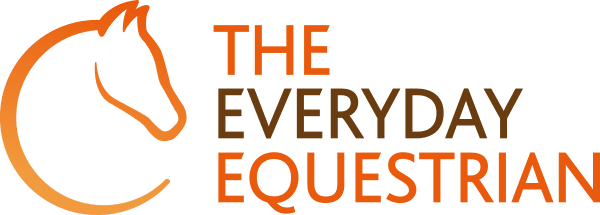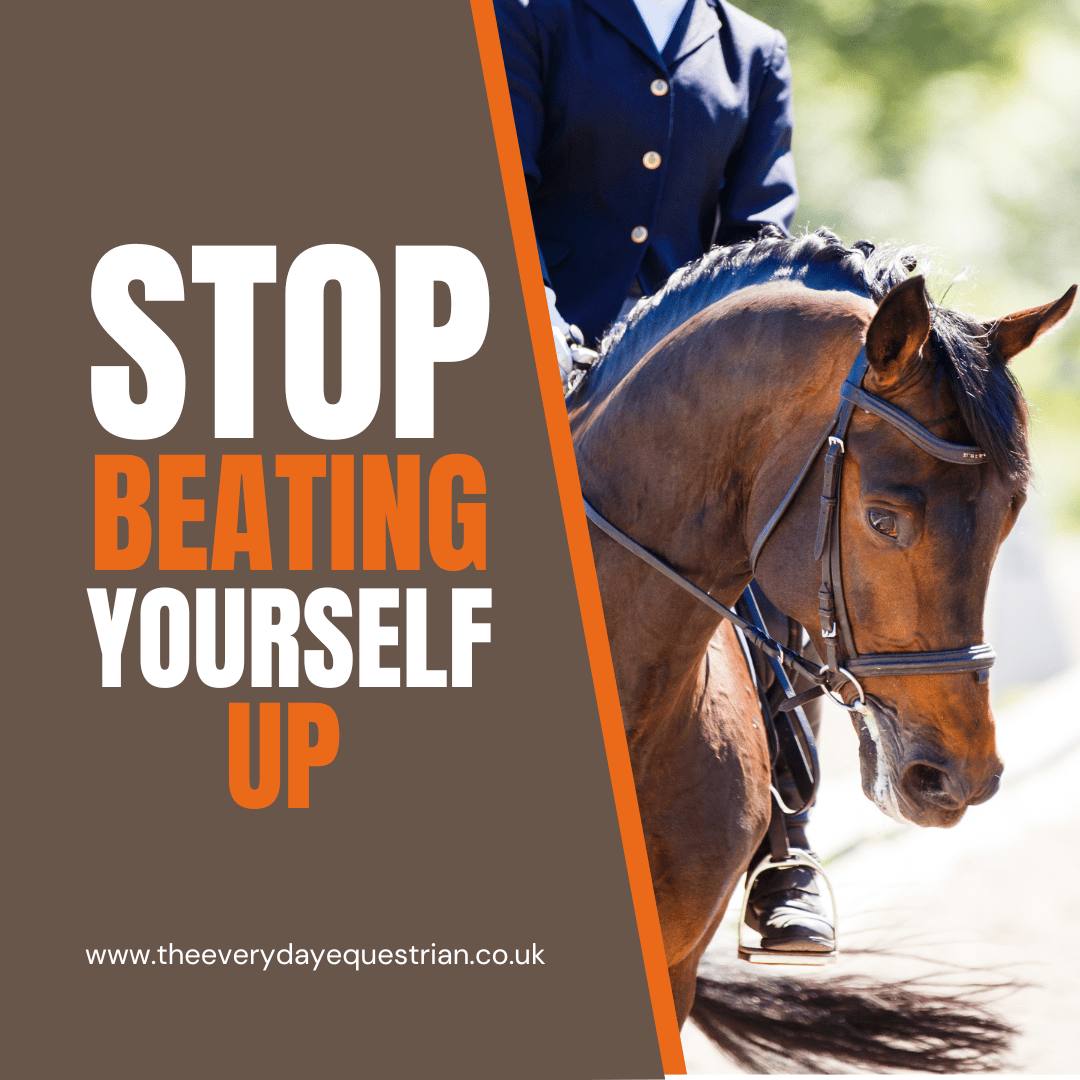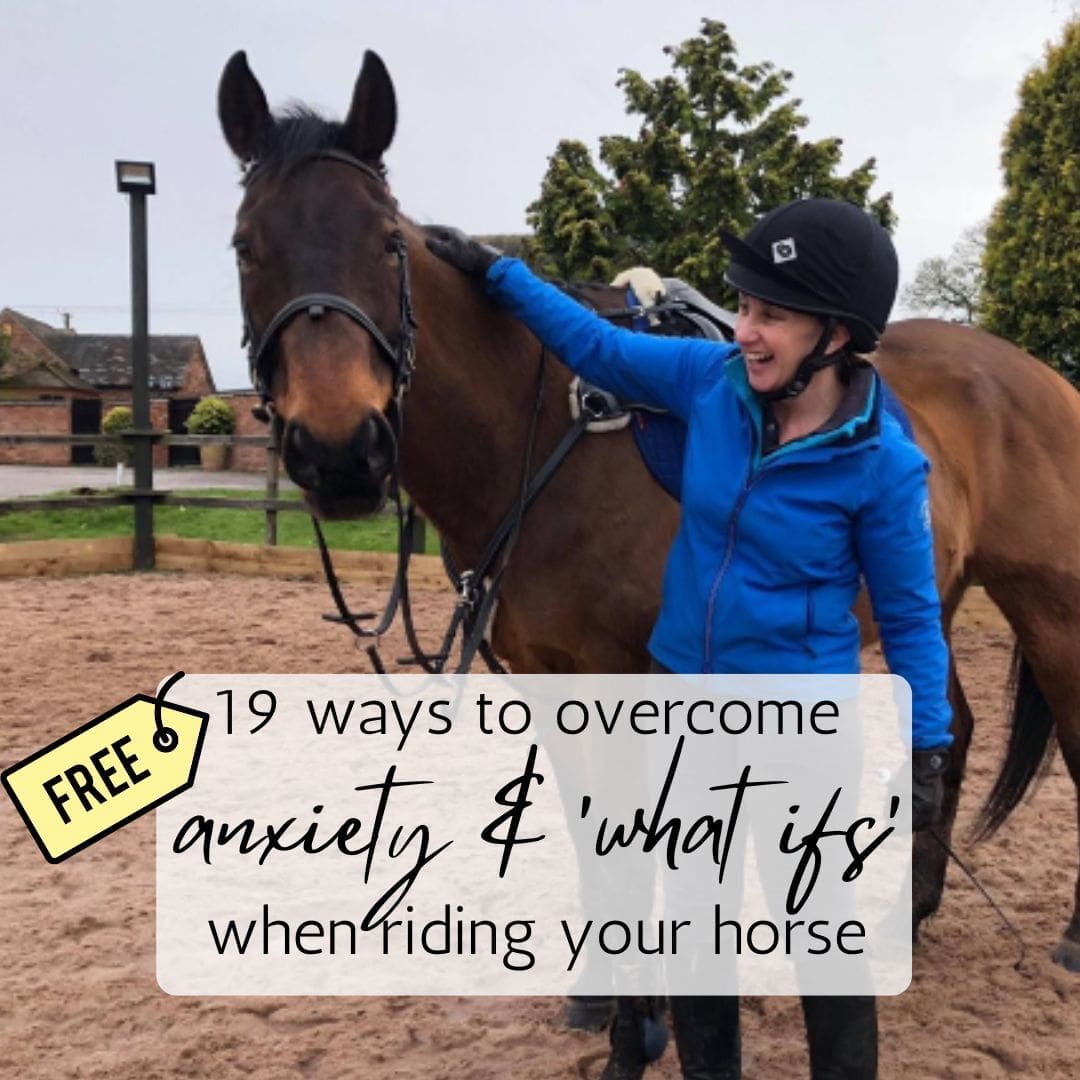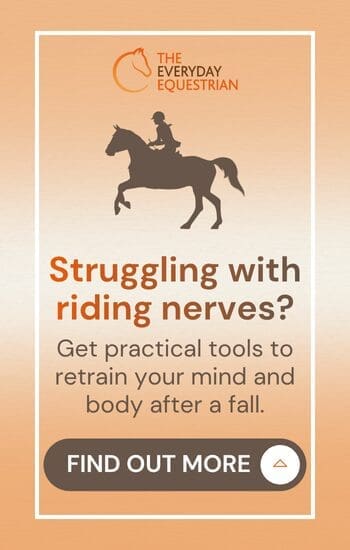So many riders struggle with being their own worst critic, finding that they beat themselves up for mistakes, or for ‘not being good enough’ (whatever that means!). It can have a massive impact on rider confidence, motivation and ultimately enjoyment in riding. For a few riders, they are so hard on themselves that it actually stops them from riding and doing what they love.
If this sounds familiar, it doesn’t have to be that way! It’s 100% possible to learn how to manage your mindset so that you can build your confidence for the long term, and achieve your equestrian goals.
So let’s look at some of the biggest reasons why horse riders beat themselves up.
Perfectionism
Sometimes riders are really hard on themselves because they want to be perfect. They focus on mistakes and things they think they could have done better, instead of celebrating their progress and accomplishments. It’s easy to compare yourself to other riders or hold yourself to really high standards that are tough to meet.
It’s sometimes easy to get stuck with a belief that everything has to be perfect, ‘just right’ before we can even begin to consider riding in a particular environment. Having goals and high expectations of ourselves can help us do the work to improve and stay motivated, however when this tips over into perfectionism, it can become debilitating.
A common symptom of perfectionism is ‘all-or-nothing thinking’, which is another type of cognitive distortion where riders see things as being either completely one way or completely the other, with no in-between. For example, a rider might believe that they must always perform flawlessly and that mistakes are not allowed in some way. This kind of thinking can be very limiting and unrealistic, as most things in life are not black and white. Some days will be brilliant, while others may not be really good, so it’s important to zoom out and maintain a broad view of a situation.
A need to present ourselves in a particular way to others can actually stop us from doing anything at all. Sometimes, ‘good enough’ is, well, good enough! No one is perfect. So why chase the impossible? Remember, scoring an elusive ‘10’ in a dressage test doesn’t mean the movement was perfect, but rather that it was excellent.
Ultimately, we only get better and develop our riding skills and confidence with deliberate practice, by finding constructive feedback and taking specific, appropriate action to improve.
Comparison
It’s common for riders to look at others and come to the (flawed) conclusion that they are ‘better’ in some way, simply because they are at a different stage in their riding journey. Remember that we only ever get a snapshot of someone else’s world, and it’s easy to miss the context of another person’s experience. We are all on our own path to improving ourselves as riders, and whilst we might not yet have the same level of skill or experience as another rider, we certainly do have the commitment and determination to work hard and develop our riding abilities. Skill and experience are not limited; they don’t run out! Just because someone else has a wider skill set than you right now, does not mean that there’s none left for you! Instead, adjust your perception so that you are inspired by the riders you look up to, and find motivation in that if they can learn to ride well, then so can you.
Worries about ‘letting their horse down’
Lack of self-belief and low self-esteem can lead some riders to believe that they might ‘let their horse down’ in some way. When riders feel that they are ‘not good enough’ (whatever that actually means!), they can accidentally create a narrative that their horse ‘deserves a better rider’ or ‘someone else would ride him/her much better’, and as a result riders are extremely hard on themselves, which only makes them feel worse about themselves.
Remember that beyond fundamental needs such as food, water, shelter, good health and a good standard of physical and psychological welfare, horses do not have any awareness about what they should or shouldn’t be doing in terms of riding or competing. They have not awareness of their ‘potential’ and what they may or may not be capable of. So when riders feel that they are not meeting their horse’s expectations in some way, it is purely their own perception of what they believe the horse should or shouldn’t be doing; the horse has no idea! Most horses just want to be loved and have a nice life… for some, that might mean a more active and varied experience, whilst others are just has happy being cared for by their favourite human.
Further to this, many riders have been brought up with the rule that when things don’t go to plan, it’s always the riders ‘fault’, not the horse. Now the original concept here was to never ‘blame’ the horse when things go wrong or when mistakes happen, instead to focus on improving communication and training of horse and rider. However, for some riders, this concept has been internalised and skewed so that they blame themselves for everything. If this sounds familiar, it’s important to recognise a couple of things:
- Blame is destructive and leads to feeling like a victim
- Blame is a waste of energy and a distraction from taking positive learning and action
If this sounds familiar, then have faith that you are doing the very best you can for your horse, and seek out learning opportunities where you might feel challenged.
Pressure
Sometimes, riders have their own personal reasons for being hard on themselves. They might feel pressure from family, friends, or themselves to succeed or perform well. They might also be dealing with personal issues like low self-esteem or anxiety, which can affect their ability to enjoy their riding experiences.
Managing external pressures is key to maintaining balance and focusing on what is actually in your control. The day-to-day pressures of work, family, friends, horses and, well, life, can have a big impact on how we feel about ourselves and about riding, and it’s important to acknowledge that.
But the trickier part is often managing the pressure and expectations that we place on ourselves, to be, do, have and experience things in a particular way. We create our own internal environment, our own narrative about how things ‘should’ or ‘should not’ be. If you struggle with this, there is a key training package in the Crack the Confidence Code member’s dashboard, called ‘Should-less Riding’, which will help you change the language you use around riding.
Negative experiences
Some riders might have had negative experiences in the past, such as a bad fall or injury. These experiences can lead to fear or anxiety around riding, and can lead to riders being really hard on themselves for feeling scared or avoiding certain situations. They might also blame themselves for the negative experience, even if it wasn’t their fault.
There are plenty of resources in the member’s area which can help you manage less-than-positive-experiences, although you might find these particularly useful:
Helicopter View
Dealing with a bad day Masterclass
Cloak of Confidence
Emergency Button Worksheet
So, if any of this resonates with you, and you’re ready to overcome these mindset patterns and programmes, then all of these resources (and much, much more!), are available to members of my Crack the Confidence Code membership community – you can find out all the details HERE.
I’d love to hear your experiences around your inner critic, or beating yourself up, so do let me know in the comments below, or drop me a line at info@theeverydayequestrian.co.uk



